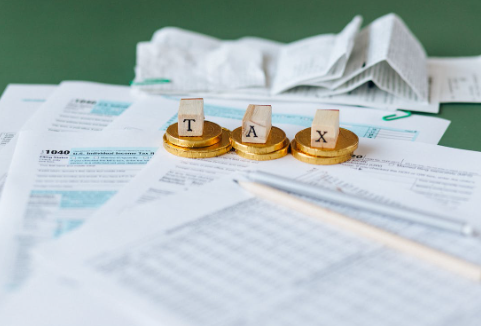What Key Tax Documents Does Every Landlord Need to File?

As a landlord, your priority during tax season should be securing the best deductions to save as much money as possible.
But if you’re a new landlord, you may not even know where to start. For instance, which tax documents do landlords need to file?
If you don’t fill out and file the correct tax documents, you can’t claim any of the advantageous deductions available for landlords. And if you don’t keep accurate records, the IRS may even scrutinize the deductions you do take.
For this reason, it’s essential to understand what is expected of you come tax season.
Here are the key tax documents every landlord needs to file, as well as some general tax tips for landlords.
Form 1040
Form 1040 is the standard personal income tax form which every individual taxpayer must file. If you’ve recently acquired rental properties, start the tax process where you normally would: Form 1040.
This form asks for basic information such as your Social Security number, information about your dependents, and your annual earnings. If you profited from your rentals this year, you must also add your rental profits to your overall income. Your overall income includes traditional salary income and other sources of income.
Schedule E
Perhaps the most important tax document for landlords is IRS Schedule E, known as the Supplemental Income and Loss form.
Schedule E is the key tax form for reporting your rental business expenses, and it’s only for landlords whose properties are under their own names instead of a business entity. This is the case for most small and mid-sized landlords.
Schedule E is where you’ll report your income and losses from all your rentals, royalties, partnerships, S corporations, estates, and trusts. You’ll also need to supply the addresses of each property you own and the type of each property (single family residence, multi-family, vacation, commercial, etc.).
To complete this form, you’ll be asked to categorize your expenses under the supplied categories, such as repairs, management fees, supplies, mortgage interest, etc. You’ll need to know which expenses are operating expenses, and therefore deductible, and which are depreciated assets. Most expenses will likely qualify as operating expenses. But what are operating expenses in real estate? These are the everyday, ongoing expenses required to keep your business running. They must be ordinary and necessary, current, reasonable in amount, and directly related to your rental business.
To file Schedule E, fill it out and attach it to Form 1040. For more information and instructions about filing Schedule E, see www.irs.gov/ScheduleE.
Form 8825
Form 8825, or the Rental Real Estate Income and Expenses of a Partnership or an S Corporation Form, is for landlords who own their properties through a business entity, such as a partnership, S corporation, or limited liability corporation (LLC).
Form 8825 is very similar to Schedule E—it is used to report your rental income and losses, except this time those profits and deductions are through your business entity.
Form 1120S
IRS Form 1120S is the U.S. Income Tax Return for an S Corporation Form, specifically for landlords who own their properties through an S Corporation. This form shows how much your business earned or lost, as well as each individual shareholder’s contribution to it.
Each shareholder much also complete Schedule E to report their shares of the corporation’s finances.
Tax Tips for Landlords
Now that you know the most important tax forms, here are some general tips for landlords come tax season:
- Know what rental property expenses are tax deductible before you file your tax return. When it’s time to file your return, you don’t want to be asking yourself about a major expense, “is rental property tax deductible?” Instead, know how to distinguish between deductible operating expenses and depreciable assets ahead of time.
- Familiarize yourself with the Tax Cuts and Jobs Act (TCJA). Passed in 2018, this law provides several beneficial changes for landlords, such as the ability to deduct 100% of the cost of certain property until next year.
- Use accelerated depreciation for personal property and land improvements. If you can use bonus depreciation, Section 179 expensing, or another method of accelerated depreciation to reduce the recovery period of your property, do so. This will give you more access to funds in the short-term, which you can use to reinvest in your rentals.
- Seek help from a tax professional. Don’t file your rental taxes without the advice of an expert—you might miss out on valuable deductions or risk an IRS audit.
Tackling Taxes
Taxes are no landlord’s favorite part of the job. However, by researching tax strategies and deductions, you can use your knowledge to save hundreds of dollars on your rental property taxes each year.





